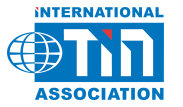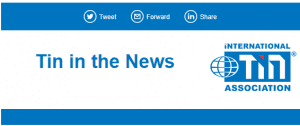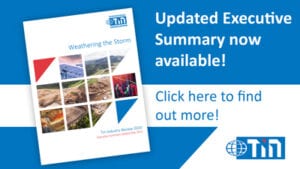Preliminary data released by Indonesia’s trade ministry showed that the tonnage of tin checked prior to export last month was 6,525 tonnes, up by 15.6% on August 2012, ahead of changes in regulations which could slash volumes this month. Cumulative tonnage in the first eight months of the year is now 68,002 tonnes according to ITRI’s records, up by 11.0% on the same period of last year. The twelve month moving total up to August was 105,560 tonnes – having stayed well above the 100,000 tonne mark every month this year so far.
Following the introduction of the new requirement that all tin metal for export must be traded through a local exchange, it is widely expected that September shipments will be much lower and may pick up only slowly in the following months.
“It’s only been one week; there will be some exports by the end of this month,” Bachrul Chairi, director general of foreign trade at the Trade Ministry, told Bloomberg. “Everyone is still adjusting, buyers and sellers are still registering. There’s a process. Exports will drop by the end of the year, but value will increase. That the target.”
The Indonesia Commodity and Derivatives Exchange, which is hosts the only currently active tin contracts in the country, expects to add members, including two smelters, to trade tin by the end of this month, President Director Megain Widjaja. He declined to identify the candidates. The bourse traded a total of 225 tonnes from 30 August to 10 September. Meanwhile a group of private smelters continues to lobby for the introduction of another tin contract on the Jakarta Futures Exchange.
PT Timah Corporate Secretary Agung Nugroho told Bloomberg that he expected that September tin ingot shipments would be very small and that this year’s annual total may fall to some 80,000 tonnes. “Even if we can sell, there’s no guarantee we can get buyers. Volume is very small.” Shipments may average 3,000 tonnes a month through December, he said. However he also noted that producers may increase shipments of other tin products such as solder and anode. The domestic trading requirement will only apply for these products from 1 January 2015, according to the regulation.


